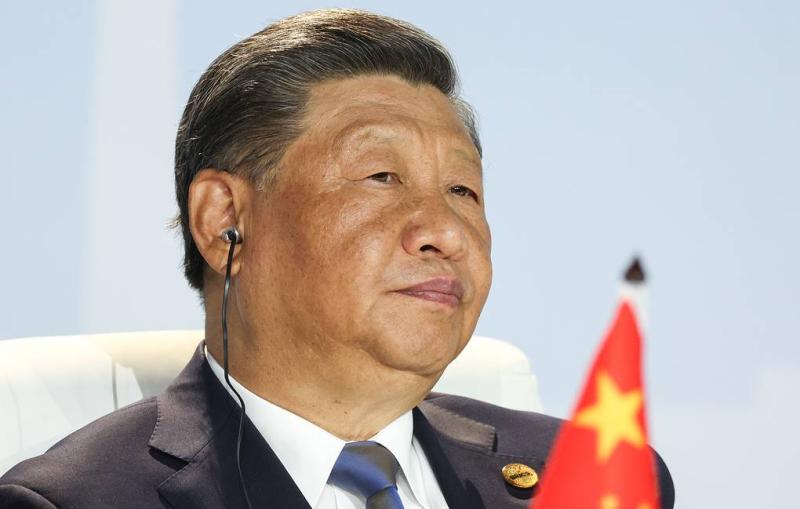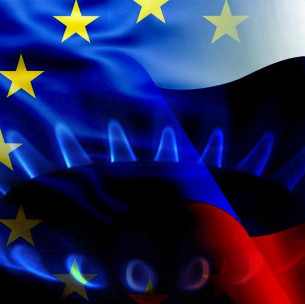
Israel and Hamas are inching closer to an elusive ceasefire agreement; China's Xi seeks to build bridges during European tour, and Rosatom slams "destructive" US ban on Russian uranium imports. These stories topped Monday’s newspaper headlines across Russia, according to TASS News Agency.
Vedomosti: Ceasefire still on shaky ground as Israel, Hamas make headway in negotiations
The Jewish state and the Palestinian movement Hamas are getting closer to a ceasefire agreement, having reached consensus on a number of points, Arab-speaking TV channels Cairo Today, Sky News Arabia, Al Jazeera and Al-Qahera News reported citing high-ranking Egyptian officials familiar with the latest round of talks being mediated by Egypt, Qatar and the United States.
Negotiators have made some progress working out the technicalities of a potential deal, CNN reported. Israeli officials said coming to terms on an agreement may take a week, according to a report that was confirmed by an unnamed US official.
However, any talk about a final ceasefire agreement between Israel and Hamas is premature at this point as the two sides still have diametrically opposed positions, Ivan Bocharov, program coordinator at the Russian International Affairs Council, said, noting that there are two main factors at work here. First, Israeli Prime Minister Benjamin Netanyahu for political reasons will not agree to set up an independent Palestinian state in the 1967 borders, and second, it is doubtful that Palestinian militants will go back on their demand that the conflict be stopped once and for all.
The freeing of hostages will only put a band-aid on the seven-month-long crisis, not fix it, Viktor Smirnov, lead researcher at the Institute of Oriental Studies of the Russian Academy of Sciences, believes. Plans by the Israeli military to hold an operation in Rafah in the southern enclave where over 1 million refugees have taken shelter are still on the political agenda, while the refugee issue is just one aspect of a broader humanitarian and political problem that needs to be resolved, he maintains. "[The parties] very much need to refrain from confrontational rhetoric and actions and start taking real steps toward a political settlement that can lead to the establishment of a Palestinian state. But Israeli sentiments aren’t geared toward solving the problem in this manner. And the global situation only aggravates the problem, therefore I cannot see any practical progress toward a rational solution," the expert concluded.
Kommersant: China's Xi arrives in France in bid to bridge divide with EU
Chinese leader uranium has arrived on a state visit to France, the first leg of a European tour that will also take him to Hungary and Serbia. The talks in Paris, which will also be joined by President of the European Commission Ursula von der Leyen, should show whether China and Europe can build a mutually advantageous partnership against the backdrop of the intensifying anti-China politics in the United States. The Chinese leader is looking to come away from the trip with guarantees that the EU will not block Chinese capital in Europe and increased investment in China. On the flip side, the struggling European economy is seeking to agree a more favorable partnership with Beijing. Xi’s trip should also show what role China can play in resolving the Ukraine conflict.
Xi’s visit comes a year after French President Emmanuel Macron traveled to China. In April 2023, the latter made a number of resonant statements about Europe’s need to achieve "strategic autonomy," arguing that the EU should be more independent from Washington and try to become a "third superpower" alongside the United States and China.
Ahead of Xi’s arrival, the Elysee Palace said that, apart from receiving Xi for talks in Paris, the French president is also planning to accompany his Chinese counterpart during his tour of Hautes-Pyrenees in the country’s southwest in order to "establish a closer personal relationship."
And China’s expectations have been formulated by Lin Jian, a Chinese Foreign Ministry Spokesperson. He said that Beijing expects the coming summit to push the comprehensive strategic partnership between China and France to a new level and "give a new impetus to the healthy and stable development of China-EU relations and make a new contribution to peace, stability, development and progress globally."
China will view the visit as successful if Xi returns from his trip with guarantees that Chinese capital will not be blocked in Europe going forward, Alexey Maslov, director of Moscow State University’s Institute of Asian and African Studies, wrote on his Telegram channel. In addition, he said, Beijing wants EU officials to express their readiness to expand investments in China, primarily in technology. "As regards political benefits that Xi Jinping is seeking, these include support of his stance on Ukraine," he added.
Kommersant: Rosatom wary of consequences of US ban on Russian uranium imports
Russia’s state-run nuclear corporation Rosatom has spoken out about the recent move by the US Congress to impose a ban on imports of enriched uranium from Russia. Rosatom told Kommersant that such initiatives, "which clearly have political implications," are "destructive for the sustainability of the global market of goods and services in the nuclear fuel cycle" and may eventually affect the nuclear energy sector in countries that make such "non-market-friendly decisions." A bill banning Russian uranium imports which has been approved by both chambers of Congress is expected to be submitted for signing by the US president soon. All signs from the White House point to Joe Biden signing the bill.
According to the latest report from the US Department of Energy, 24% of low-enriched uranium (LEU) supplies to 93 reactors in the United States comes from Russia, followed by Germany, Britain and the Netherlands by quite a margin. Last year, Russia supplied over $1.2 bln worth of LEU to the United States, the Department of Commerce said. Nuclear’s share in the US energy market is 20%, and the country produces 27% of this energy domestically.
Ivan Timofeyev, director of the Russian International Affairs Council (RIAC), told Kommersant that the draft law continues the trend of the US banning certain categories of goods from Russia, with the bulk of restrictions being introduced amid the Ukraine conflict. However, the expert believes that this latest initiative has a different air about it in that the latest sanctions will be authorized by a federal law. "And repealing federal law is quite difficult, unlike a presidential decree," Timofeyev explained.
However, he described the bill as "quite flexible," as it provides the executive branch with enough room for maneuver. "Whether Russia will be ready to continue supplying [uranium] should the United States need these supplies is another issue of the political domain. Anyway, we can see the continued trend toward banning Russian imports and using a policy of enshrining sanctions into federal law more often. This may be viewed as a continuation of the escalation of sanctions on Russia," the expert concluded.
Vedomosti: At least three foreign leaders may visit Russia on May 8-9
Arrangements for Victory Day parades in Moscow and other Russian cities are now in their final stages, with the May 9 parade on Red Square expected to involve over 9,000 people and 75 pieces of military equipment. The event will come two days after the inauguration of Russian President Vladimir Putin and a day after the 10th summit of the Eurasian Economic Union (EAEU) set to take place in Moscow.
A Russian Foreign Ministry official deferred questions about the number of guests who have been invited to the parade to the Kremlin, while Russian Presidential Spokesman Dmitry Peskov told Vedomosti that the Kremlin "will release all the information about foreign guests" later on Monday.
Meanwhile, there have been media reports announcing the arrival of several Russian partners. Officially, three visits to Russia on May 8-9 have been confirmed, and people in state-owned media said on conditions of anonymity that as many as four foreign leaders may attend.
Among other leaders, TASS has confirmed that the presidents of Guinea-Bissau and Laos, Umaro Sissoco Embalo and Thongloun Sisoulith, respectively, will arrive, and a diplomat told TASS that Cuban leader Miguel Diaz-Canel is also expected to visit.
In addition, Tajik President Emomali Rakhmon and Kazakh leader Kassym-Jomart Tokayev are expected to take part in the festivities. And the office of Kyrgyz President Sadyr Japarov said that he is also planning to visit Moscow, without elaborating. Besides, visits by Armenian Prime Minister Nikol Pashinyan and Belarusian President Alexander Lukashenko are likely. The latter will certainly attend the EAEU summit.
If Armenia skips the EAEU meeting and the May 9 celebrations in Moscow this year, it will be symbolic as the Armenian premier is currently involved in preparations for a meeting with the population of a border area, Vadim Mukhanov, head of the Caucasus branch of the Center for Post-Soviet Studies at the Russian Academy of Sciences’ Institute of World Economy and International Relations (IMEMO RAS), told Vedomosti. He doubts that Pashinyan will attend the EAEU summit either, amid the worsening relations between Armenia and Russia as the expert sees a trend toward the relationship deteriorating further.
However, the announced arrivals of other foreign leaders show that Russia is not isolated globally, with Guinea-Bissau seeking to expand investment and Laos being the most pro-Russian member of ASEAN, Andrey Kortunov, research director at the Russian International Affairs Council (RIAC), said.
Rossiyskaya Gazeta: Gold set to lure more investors
The Russian government has canceled the export duty on gold under a decree signed by Prime Minister Mikhail Mishustin. On June 1, a law introducing an additional coefficient to the mineral extraction tax (MET) on gold in the amount of 78,000 rubles ($848) per 1 kg will come into force. According to Mikhail Gordiyenko, associate professor with the Department of Sustainable Development Finance at the Plekhanov Russian University of Economics, this will help make the metal more attractive to investors.
"The move could also have a major impact on investment in gold. The increase of the mineral extraction tax reduces the margin for gold miners, which may cool investor interest," the expert believes. On the other hand, more stable revenues from gold mining through guaranteed tax deductions may make the industry more lucrative to long-term investors who are looking for stability and predictability in market rules. Global think-tanks and rating agencies, too, forecast a steady rise in the price of the precious metal in the medium term, he added.
Removing gold from the exchange rate export duty and simultaneously raising the mineral extraction tax are aimed at ensuring an inflow of revenue to Russia’s coffers. The measure would bring additional budget revenues, regardless of the volume of gold exports or their quality, the expert explained. This will help bring more predictable and stable revenues, which is extremely important in the face of sanctions, he said. According to the expert, the measure could potentially generate 15 bln rubles ($162.3 mln) in extra revenues.
TASS is not responsible for the material quoted in these press reviews









